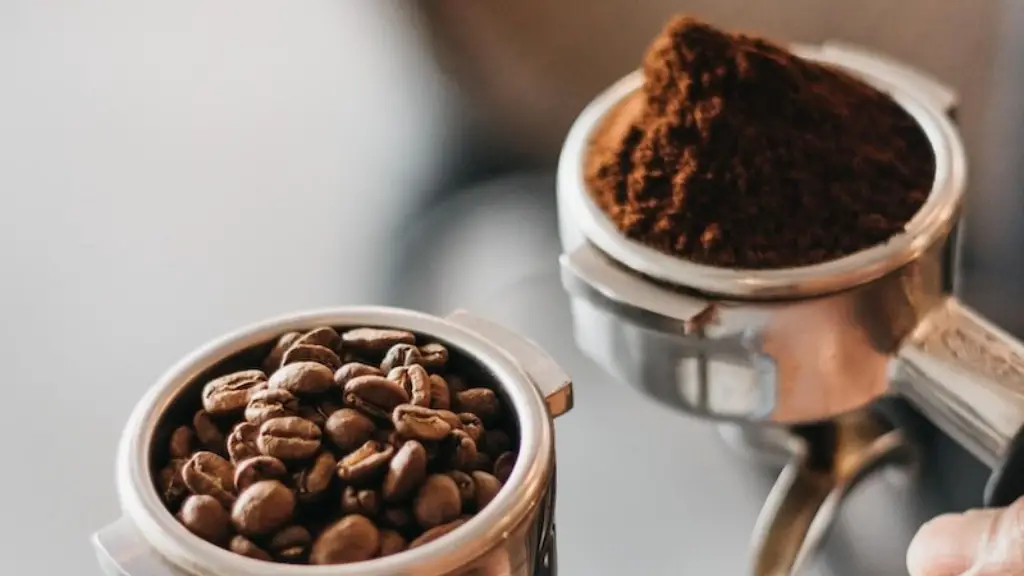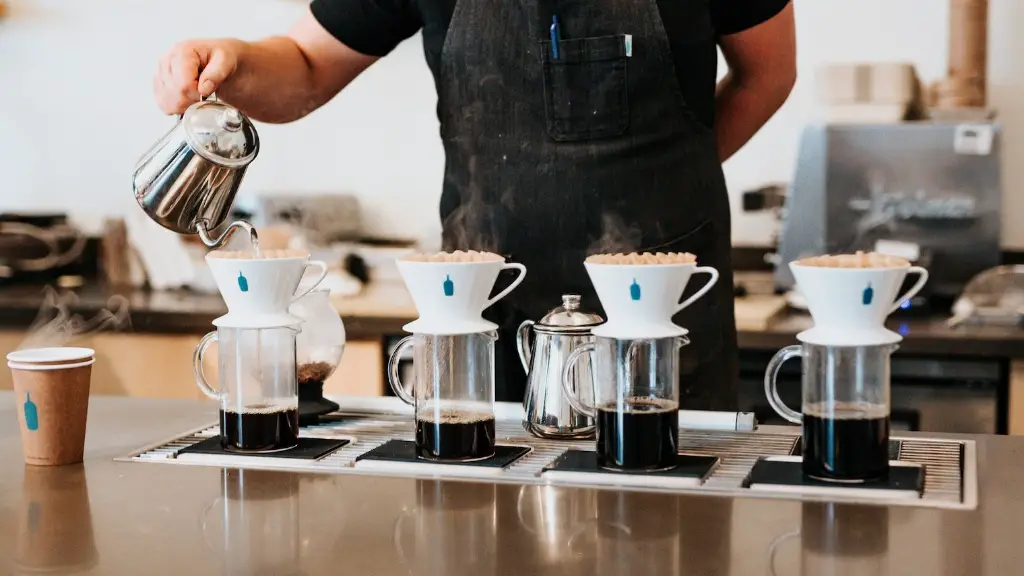Cause of Migraines
Migraines are severe headaches that cause a pulsing sensation around the head and neck area. While they can be extremely debilitating, their exact cause is still unknown. The most commonly accepted theory is that they are caused by blood vessels in the brain suddenly constricting, provoking an intense pain.
Various environmental triggers have long been considered to provoke migraines such as bright light, loud noises, and fragrances. It has been hypothesized that some dietary and beverage habits, such as drinking coffee, could be a key factor in the onset of a migraine.
Evidence and Research
Recent research suggests that the amount of caffeine consumed could play an important role in provoking migraines. While low doses of the stimulant would increase attention, making the brain more sensitive, excessive amounts could lead to symptoms such as anxiety and insomnia.
In a 2018 study conducted by Uppsala University, 100,000 Swedish people were surveyed regarding their coffee consumption and the presence of migraines. The results showed that those who consumed more than three cups of coffee a day were 70% more likely to experience a migraine. It also suggested that drinking more than five cups was associated with a 67% greater chance of developing a migraine on the same day, relative to people who drank no coffee.
However, there is not yet enough clear evidence to conclude that drinking coffee has a direct link to provoking migraines. Further studies have been conducted to assess the impact that coffee could have, but the results were inconclusive. This could be the result of different levels of caffeine sensitivity from person to person, making it difficult to establish a general pattern.
Expert Analysis
Laura, a neurologist at the New York Headache Center, states that drinking coffee is not necessarily a direct cause of migraine headaches, but instead a trigger. “We often see patients who experience drastic changes to their diets when they have a migraine,” she says. “This could be anything from changing the intake of coffee to consuming less sugary foods or soda.”
Unlike a direct cause, migraine triggers are the events or activities that prompt them due to the changes they bring to the person’s body. For coffee drinkers this could be the sudden increase in blood pressure, resulting in the constricting of blood vessels in the brain.
According to Dr. Lawrence Newman of The Lenox Hill Hospital in New York, “It’s about finding what works for you. If you notice that your daily intake of coffee directly relates with the onset of migraines, then you could try and cut down the amount of coffee you consume, limiting your daily consumption to one or two cups instead.”
Alternatives
Some people with a particularly strong sensitivity to caffeine opt for decaffeinated coffee to reduce their chances of experiencing a migraine. However, there are also other alternatives that could provide the same energy boost while being easier on the body.
Teas have been considered a great alternative to replace coffee in the morning as they contain lower amounts of caffeine as well as having other benefits. Some of them contain antioxidants that can help boost metabolism and assist with weight loss. They also provide a wide variety of flavors which makes them a healthier and enjoyable alternative.
Herbal teas are also an option and common choice. They don’t contain caffeine and can have many positive effects on the body. Ginger tea, for example, is extremely effective at relieving headaches, and chamomile tea can help reduce anxiety and stress. These can be a great choice for someone looking to kick the caffeine habit.
Nutrition
Nutrition plays an important role in migraine prevention as it helps balance the body’s serotonin levels and improve overall health. Eating healthy and including a balanced range of vitamins and minerals through foods such as vegetables, fruits, lean proteins, and fatty fish can lead to better energy levels, reducing the risk of low blood sugar and having to rely on caffeine.
It’s also important for people with migraines to remain well hydrated as dehydration can act as a trigger for them. Drinking plenty of water throughout the day can help with headaches and reduce the intensity of migraines.
Exercise
Regular exercise such as walking, cycling, swimming, and dancing can help with stress levels, reduce fatigue and balance hormones. Furthermore, it can help increase the levels of endorphins in the body associated with feeling good, which can reduce the chances of getting a migraine.
For people particularly sensitive to caffeine, it’s important to try and limit the intake of it in order to reduce the chances of a migraine. Whether it’s done by substituting the coffee with a tea or herbal drink or including healthy food and exercise into your routine, it’s possible to regulate the body and enjoy a migraine-free life.
Behavioral Habits
Being aware of the different triggers that can lead to migraines is key to prevent them. Reducing stress and getting a good night’s sleep is also crucial. Stress can significantly increase the risk of migraines, so exercising, using relaxation techniques such as meditation, and spending time with friends and family can all help reduce the chances of getting a migraine.
If lifestyle isn’t enough, there are also medications and remedies that can be used to prevent migraines and help alleviate the symptoms. In some cases, acupuncture can help reduce the intensity of the migraine and bring more balance to the body.
Keeping a healthy routine with beneficial behaviors, foods and drinks such as decaffeinated coffee or herbal teas, can work in reducing the pain, or even prevent a migraine altogether.




